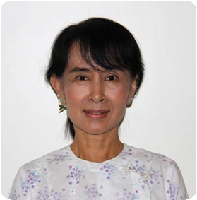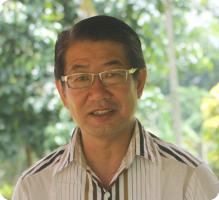Selection Process
The Sakai Peace Contribution Award screening committee met on 23rd March and 28th June, 2012 to discuss the nominations and select the winners. On 7th September, Mr. Masaaki Ueda, the committee chairperson, released a report and the award recipients were selected as listed below.
Judging System
The committee sent out a request for nominations from both domestic and overseas intellectuals, and academic institutions (370 within Japan and 130 from overseas) and the committee members.
The award recipients were selected from the list of nominees proposed by the screening committee, and the final judge was made by the city.
Process
2011 |
June. |
Nomination request forms distributed to the referees (500 send-outs/Japan and overseas) |
|---|---|---|
30 September. |
Deadline for nominations (24 nominations received) |
|
2012 |
February. |
Selection materials presented to the screening committee |
23 March. |
First screening committee meeting held |
|
28 June. |
Second screening committee meeting held |
|
7 September. |
Award recipients selected (2 Grand Prize/1 Individual, 1 Group, 1 Encouragement Prizes) |
Category |
Number of Nominations Requested |
Number of Nominations Collected |
||
|---|---|---|---|---|
Japan |
Individuals |
210 |
370 |
14 |
Research Institutions |
60 |
0 |
||
Universities |
60 |
0 |
||
Intermediate NGOs |
40 |
2 |
||
Overseas |
Research Institutions |
40 |
130 |
3 |
Miscellaneous Organisations |
40 |
2 |
||
Universities |
30 |
1 |
||
Embassies in Japan |
20 |
2 |
||
Total |
500 |
24 |
||
Individuals |
Groups |
Total |
|
|---|---|---|---|
Japan |
7 |
8 |
15 |
Overseas |
5 |
4 |
9 |
Total |
12 |
12 |
24 |
Introduction of the Award Recipients
Grand Prize
Daw Aung San Suu Kyi

Profile
Daw Aung San Suu Kyi was born in Yangon (formerly Rangoon) on June 19th, 1945.
She lives in the Republic of the Union of Myanmar.
She is chairperson and general secretary of the National League for Democracy (NLD).
In 1988 in Burma (now Myanmar), the socialist regime which had lasted 26 years, was overthrown by widespread pro-democracy demonstrations throughout the country. However, the military junta suppressed the demonstrations, taking power, and forming the State Law and Order Restoration Council (SLORC). The SLORC was reconstituted as the State Peace and Development Council (SPDC) in 1997.
In January, 2011, Parliament was convened based on the results of a general election, and a president and vice president were elected in February. In March, 2011, a new government was founded and assumed power from the State Peace and Development Council (SPDC). The name of the country was changed from the Union of Myanmar to the Republic of the Union of Myanmar at the same time.
Daw Aung San Suu Kyi was born in 1945 to General Aung San, a national leader of Burma (now Myanmar). She joined the pro-democracy movement in 1988, formed the National League for Democracy (NLD), and assumed the position of general secretary. However, she was placed under house arrest under the National Security Law in 1989, which continued, after temporary suspension, until 2010.
Despite her detainment, Ms. Aung Sun Suu Kyi was awarded the 1991 Nobel Peace Prize, and was the first Asian woman to receive the award.
In April, 2012, as the result of a by-election of the Myanmar Assembly of the Union, NLD members, including Ms. Aung San Suu Kyi, became able to participate in national politics. Now there are signs of reform in Burma (now Myanmar) to realize democracy, national reconciliation and sustainable development.
The Motivating Factors for this Selection
Daw Aung San Suu Kyi has made unflagging efforts towards democracy and respect for peace for many years, despite her difficult situation; the military junta had placed her under house arrest to stop the pro-democracy movement in Burma (now Myanmar) since 1989 until she was released from detention in November 2010. With the result of this year’s by-election, she is expected to play an important role on Myanmar’s journey to achieving democracy.
We believe that democracy in Burma (now Myanmar) will not only ensure the fundamental peace and human rights of the people, but also contribute the peace and stability of the entire Asian region.
Grand Prize
Taiwan Red Cross Organization
In front of the Nagaya house, a disaster recovery public housing facility in Soma City, which they donated to build.
With people of Soma City and members of the Japanese Red Cross Society (Ms. Wang: in the middle wearing the Red Cross vest)
Established: March, 1904
Location: Taipei City, Taiwan
President: Ms. Wang Ching-feng
Profile
The Taiwan Red Cross originated as the Shanghai Cosmopolitan Red Cross in March, 1904, and was renamed the Red Cross Society of the Republic of China in 1933.
The Red Cross Society of the Republic of China moved to Taiwan in 1949, and was established as the only civilian organization by law in Taiwan in 1954. Today still, they offer humanitarian support at home and abroad, communicating with other Red Cross Societies around the world.
When the Great East Japan Earthquake hit on March 11, 2011, the Taiwan Red Cross immediately sent a donation of about ¥1.3 billion, and later sent about ¥400 million more, making a total of approximately ¥1.7 billion in donations for the urgent recovery efforts of the devastated area, through the Japanese Red Cross Society.
Also, in December, 2011, the Taiwan Red Cross and the Japanese Red Cross Society agreed on a cooperation plan to provide the devastated areas with longer-term and concrete support in collaboration with the Japanese Red Cross Society.
With this agreement, the Taiwan Red Cross expressed their intention to use about ¥5 billion to build medical and welfare facilities, housing and children’s daycare centers in Yamada Town and Otsuchi Town in Iwate Prefecture, Minamisanriku Town and Kesennuma City in Miyagi Prefecture, and Shinchi Town and Soma City in Fukushima Prefecture.
Since the disaster, they have visited the devastated areas many times, collaborating with the Japanese Red Cross Society and local municipalities to support the affected areas.
The Motivating Factors for this Selection
The Great East Japan Earthquake brought the most devastating damage ever experienced by each region, and many people still have to live in evacuation shelters away from home. Rebuilding their lives and livelihoods will still take a long time yet.
Amidst all that, Japan has received donations from many countries and regions. Especially, the people of Taiwan gave us tremendous support through the Taiwan Red Cross, which was the largest scale donation among Asian countries and regions.
In particular, the Taiwan Red Cross has been providing continuous support in cooperation with the municipalities of the devastated areas and the Japanese Red Cross Society to offer mindful support which suits the actual situation of each devastated area.
The Taiwan Red Cross is highly valued for these activities, by not only rebuilding the devastated area but also developing a future-oriented relationship between Japan and Taiwan and contributing significantly to building peace and stability in the Asia-Pacific region.
Encouragement Prize
Mr. Tomo Matsui

Profile
Mr. Tomo Matsui was born in Tokyo on March 2, 1953. He lives in Kidapawan City, Philippines. He is a children’s author and the executive director of the Mindanao Children's Library Foundation.
On Mindanao island in the southern Philippines, after the Second World War, a confrontation intensified between the government and the Moro people (a generic term for the indigenous Muslim population), who have their own society and culture. In 1970, combat broke out between Moro guerrillas, who demand self-determination, and government forces, resulting in great loss of life and many evacuees.
A cease-fire agreement was drawn up in 2003, and peace negotiations are being kept. However, a condition of instability still remains.
As it happens, Mr. Matsui visited Mindanao Island in 2000, and saw the children there who had become refugees due to the conflict, impoverished and exhausted, showing no expression on their faces, let alone smiles. The shocking sight of these children awoke in him the strong desire to help them, leading him to remain on the island and start reading story books to children.
In 2003, he established the “Mindanao Children’s Library Foundation” to expand his activities, constructing elementary schools and day-care centers, offering medical services, scholarships and other support.
Now, about 100 children, speaking different dialects and practicing different religions, who cannot make the trip to school from home due to poverty or other reasons, live together in the library. To date, the library has offered scholarships to about 630 children, including those living in the library, who cannot attend school for various reasons.
In recent years, he has been inviting Japanese young people struggling with issues such as school truancy or social withdrawal, in order for them to build up the mental fortitude to battle the difficulties in their lives by supporting these children and interacting with them.
The Motivating Factors for this Selection
There are many children who cannot receive a full-fledged education or medical services due to poverty in Mindanao Island, Philippines, where the conflicts between religious and ethnic groups are still continuing.
Mr. Matsui helps these children rediscover the pride in their own cultures and ethnicities, visiting communities in the mountains, to which roads are in poor condition, reading story books to the children. He also provides mindful support to the children who need medical care when he visits.
In addition, his activities consistently aim to resolve hostilities caused by the differences in their ethnic and religious backgrounds.
In his library, children with different dialects and religions all live together so that they can know and accept the differences of each other’s cultures.
We believe these activities play an important role to realizing a society in which people’s diversity can be accepted, by restoring human dignity and promoting national reconciliation on Mindanao Island.
